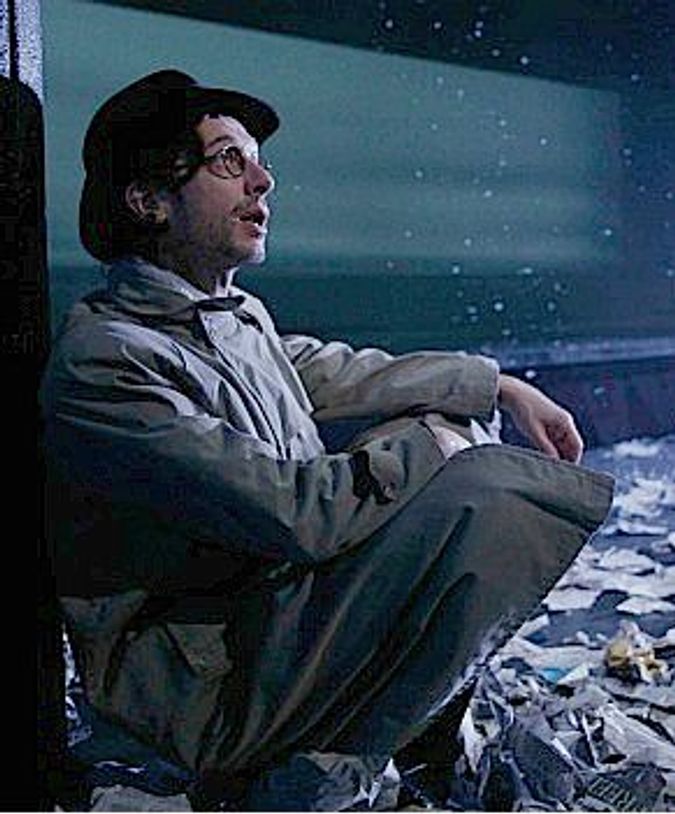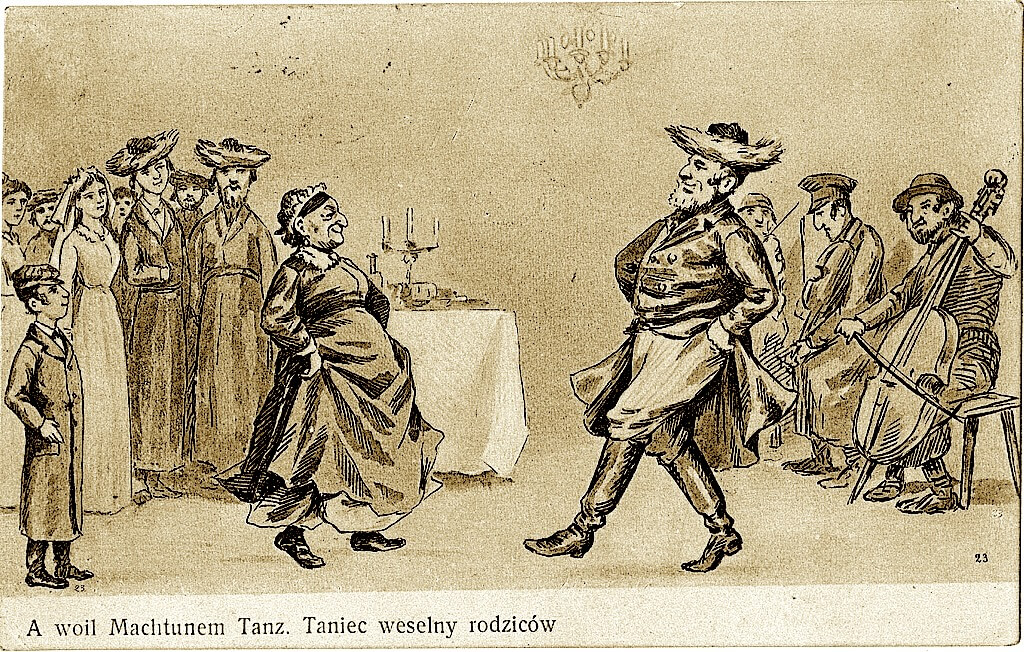I.B. Singer and the Problem of Surviving

Herman Broder is a gangly loser who’s won the biggest prize of all: his life. After surviving the Nazi onslaught in Poland by hiding in a haystack, he emigrates to America — specifically, Coney Island — with the gentile Polish woman who hid him, and who is now his wife. This is the setting of “Enemies: A Love Story,” a play performed for four nights last week by the Gesher Theater Company at the Frederick P. Rose Theater in New York.

This adaptation of a novel by Isaac Bashevis Singer (published serially in the Forverts in 1966) unfolds as Herman reels from one agitation to another. It seems his one noble act — protecting his savior, who endangered her own life by saving his — is all he’s got. Now he is hurled between his wife Yadwiga and his mistress Masha on bumpy inter-borough subway rides that, amid the atmospherics of striking lighting and set design, comprise some of the play’s most affecting moments. That’s when actor Israel Demidov embodies the more sympathetic side of his anti-hero. Otherwise, he is an indecisive liar. (And beds ladies with his tie on, twice.)
Herman is by turns perplexed, lusty and suicidal. Then his wife Tamara shows up. He thought she was killed in the Holocaust along with their two children. But she reappears in New York, and although they are unnerved by meeting again, it seems there is no great love to rekindle. As the realization that he has two wives and a mistress sinks in for Herman — and eventually for all three of them — he reels ever more out of control, pinging between his home life with a now-pregnant wife so devoted to Herman that she wants to convert; the Bronx apartment where his demanding mistress, another Jewish survivor, lives with her elderly mother; and conversations with his undead wife, who transmits an odd mix of reproach and caring.
So this is the prize, survival. A person is as good or bad as he was before, with the addition of memories to plague his days and questions to confound his actions. Herman can still feel the Nazi’s bayonet stabbing at the haystack that shielded him. He muses on the idea that there are 36 righteous people in every generation. Only 36.
Singer himself was a refugee from Poland in Coney Island, obsessed with his own indecision and that of others, and once found himself torn between three women (according to his story “A Day in Coney Island”). His matter-of-factness about people’s characters and behaviors allowed him to reveal that anything is possible. But that lens turns grimy in this rendition of “Enemies,” written by Roee Chen and Yevgeny Arye, who also directed the play. Arye is the artistic director of Gesher Theatre, a Tel Aviv company formed by Russian émigrés. The U.S. premiere of the play was part of the Russian-inflected Cherry Orchard Festival of the Arts. Compare it to the American movie version of “Enemies,” for example, directed by Paul Mazursky, where the taste of ashes is combined with the cotton candy of the Brooklyn shore. The story can be told in technicolor, but this production is mostly gray and black.
Perhaps that’s the Israeli soul blending with the original Yiddish. The play was performed in Hebrew and simultaneously translated via earpieces to the audience in Russian and English. Indeed, the logistical turmoil involved in distributing translation devices to hundreds of people before a show, not to mention returning them afterward, may have set a properly stressed mood. As expressed in modern Hebrew, the cartoonish histrionics of Masha (Efrat Ben-Zur), the aloofness of Tamara (Lilian Ruth), and the limpness of Herman can seem like characteristically Israeli missteps. So too some out-of-context sounds: flat European ring tones, rather than American “brring!”s, emanating from the telephone booths flanking the set; a contemporary “stand clear of the closing doors” announcement in the subway, even though the time is the 1950s. Among a cast of prickly characters the most likeable is the Polish wife, Yadwiga (Natasha Manor): her heart is pure.
This production’s design is generally elegant, and much of the acting is strong. Together they harden a “love story” into a survival story. In the lecture he delivered upon receiving the Nobel Prize in Literature in 1978, I.B. Singer said, “The pessimism of the creative person is not decadence but a mighty passion for the redemption of man.” This production is pessimistic, speaking little of redemption. It is silenced by the sharp end of a bayonet.
A message from our Publisher & CEO Rachel Fishman Feddersen

I hope you appreciated this article. Before you go, I’d like to ask you to please support the Forward’s award-winning, nonprofit journalism during this critical time.
We’ve set a goal to raise $260,000 by December 31. That’s an ambitious goal, but one that will give us the resources we need to invest in the high quality news, opinion, analysis and cultural coverage that isn’t available anywhere else.
If you feel inspired to make an impact, now is the time to give something back. Join us as a member at your most generous level.
— Rachel Fishman Feddersen, Publisher and CEO
























